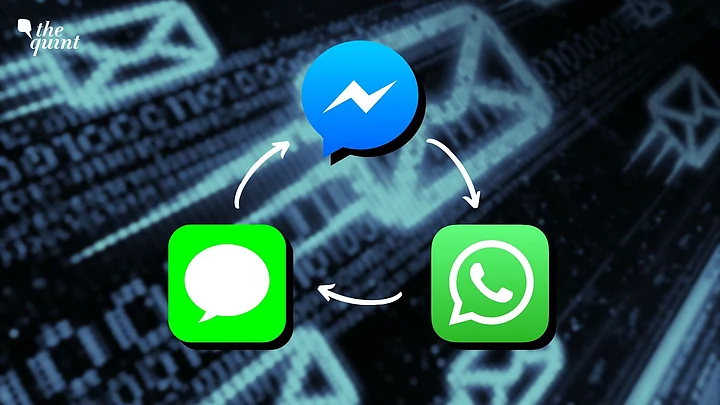A new European Union law could require messaging services like WhatsApp, Facebook Messenger or iMessage to be able to send messages to each other and smaller messaging services like Discord or Signal.
The legislation, which was approved by EU members on Friday, 1 April, and awaits official adoption, is intended to keep large platforms acting as “gatekeepers” in check and open up the field for smaller players.
European lawmakers came to an agreement that the largest messaging services will have to open up and interoperate with smaller messaging platforms, when requested.
"Users of small or big platforms would then be able to exchange messages, send files or make video calls across messaging apps, thus giving them more choice," the EU said in a statement.
What Does This Mean for EU residents?
This law would mean that EU residents would have viable choices in messaging apps. They will be able to pick any service without having to worry about restricting themselves to that service's user base.
Messaging services currently don't offer interoperablility, which means that the one with the biggest user base automatically has the advantage. Apple is the worst offender in this regard; accessing iMessage outside the Apple ecosystem is a painful task.
Apart from being able to exchange messages, send files or make video calls across apps, the law would also allow users to freely choose which "core services" (browser, virtual assistant or search engines) they want to use on their device.
Theoretically this could mean that EU residents will be able to use Siri or Safari on their Android smartphone.
"The Digital Markets Act puts an end to the ever-increasing dominance of Big Tech companies. From now on, they must show that they also allow for fair competition on the internet," rapporteur Andreas Schwab said.
Provisions for interoperablility of social networks will be assessed in the future, according to the statement.
Who are the Gatekeepers?
The legislation targets large companies providing “core platform services” most prone to unfair business practices like social networks or search engines.
These 'gatekeepers' must have a market capitalisation of at least 75 billion euro or an annual turnover of 7.5 billion. They must also provide certain services such as browsers, messengers or social media, which have at least 45 million monthly end users in the EU and 10,000 annual business users.
This group currently includes Amazon, Google's parent company Alphabet, Apple, Facebook and Instagram's parent company Meta, and Microsoft.
If these 'gatekeepers' don't comply with the rules, the commission will be able to impose fines of up to 10 percent of the offender's worldwide turnover in the preceding financial year.
For repeated infringements the fines can be up to 20 percent and for "systematic infringements" the European Commission can ban them from acquiring other companies for a period of time.
Encryption Could Be an Issue
Companies have their own encryption protocols that ensure messages can't be spied upon.
To create interoperability while ensuring messages stay encrypted will be complicated, so the final agreement is expected to include staggered deadlines, an EU spokesperson told The Verge.
Several experts are concerned that end-to-end encrypted services like WhatsApp or Signal will be forced to interact with protocols like SMS, which are less secure.
Steven Bellovin, an internet security researcher and professor of computer science at Columbia University told The Verge that there is no viable way to fuse together different forms of encryption across apps.
“Trying to reconcile two different cryptographic architectures simply can’t be done; one side or the other will have to make major changes,” Bellovin said.
Another approach could be to decrypt and re-encrypt messages between incompatible services, which would create an extra point of failure or vulnerablility.
Alec Muffett, a former Facebook engineer, told the publication that tech companies weren't making identical and interchangeable products that could easily be combined.
But some experts believe that messaging interoperability, while challenging, isn't impossible to do without sacrificing security and that the benefits outweigh the losses.
(With inputs from The Verge)
(At The Quint, we question everything. Play an active role in shaping our journalism by becoming a member today.)
